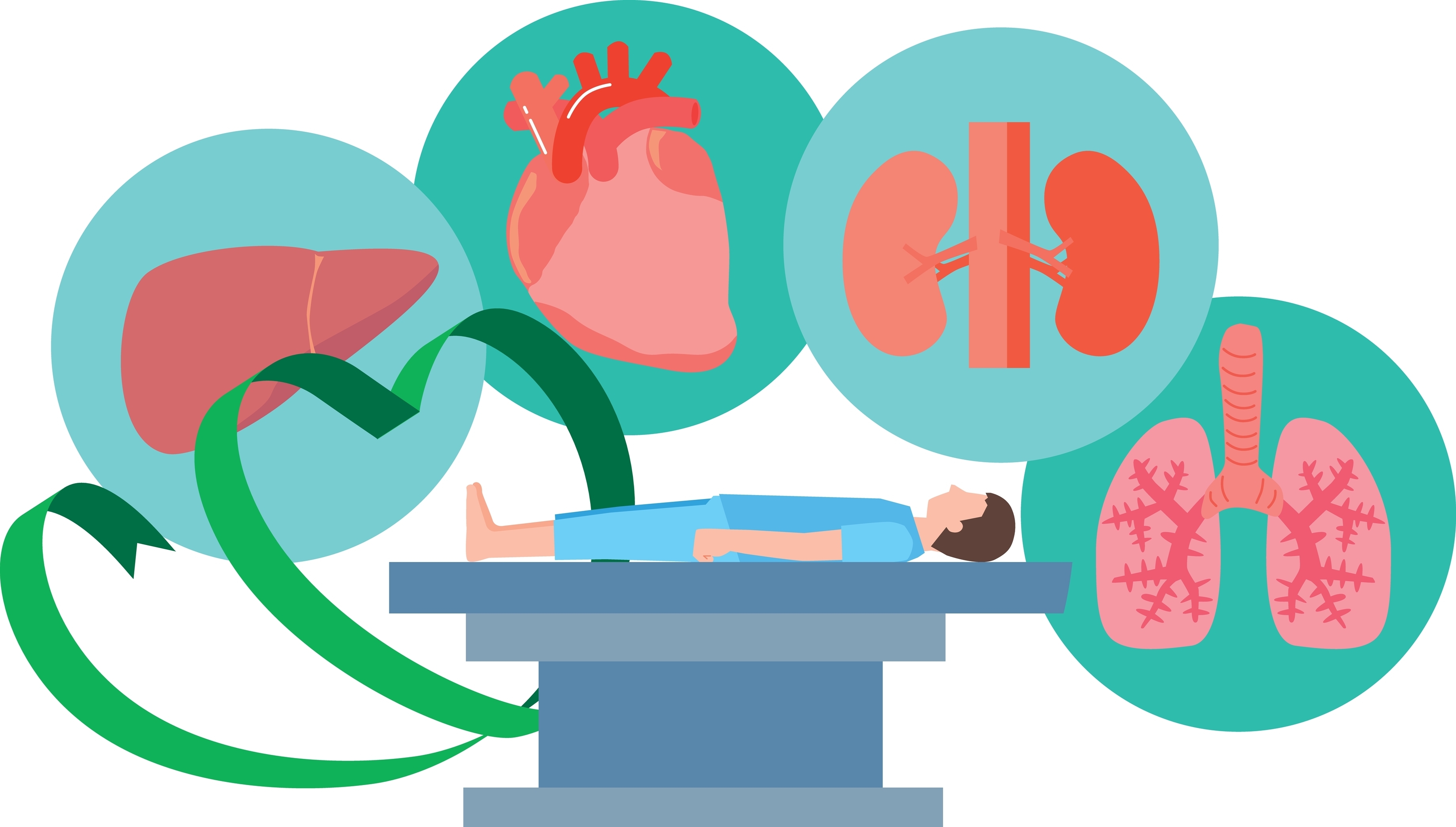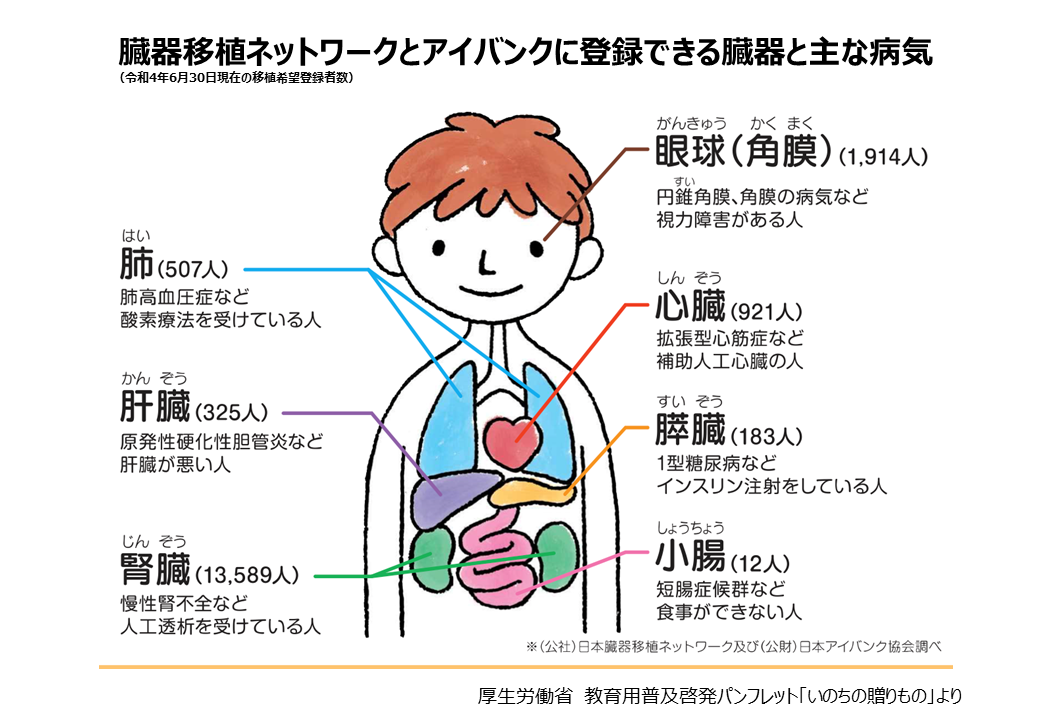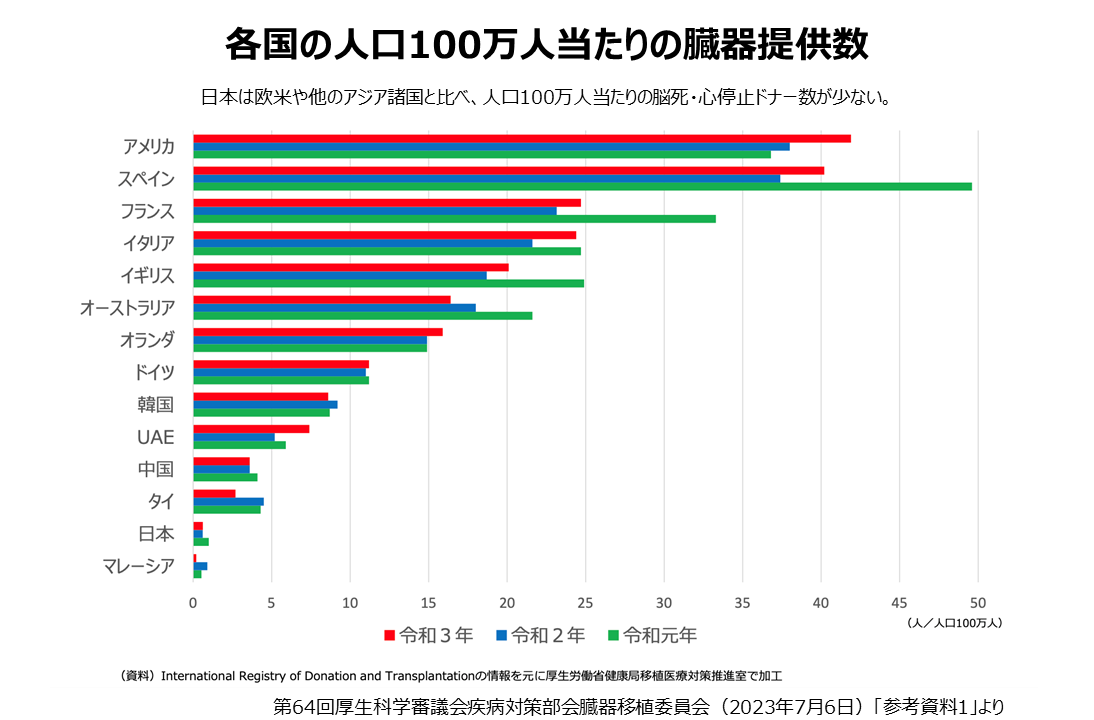ASOURCE®NAVI

公開日:2024.02.08
臓器移植は、臓器の機能が低下し、他の方法では治療できない状態にある患者に対して、他の人から提供された臓器を移植する医療プロセスです。これは、善意による臓器提供者(ドナー)と社会全体の理解と支援によって成り立っています。臓器移植についての記事、第2回目は、臓器移植希望者、海外の状況、今後の課題をご紹介します。
日本臓器移植ネットワーク(以下、JOT)における臓器移植希望者数は、2023年11月末現在で腎臓は1万4,275人、心臓が867人、肺が569人、肝臓が372人、膵臓が157人、小腸9人となっています。JOTに登録したからといってすぐに移植が行われるわけではなく、移植を待つ間、移植希望者は自分に適合する臓器のドナーが現れるのを待たなければなりません。待機期間は臓器によって異なり、平均的な年数で心臓の場合は約3年、肺は約2年半、肝臓は約1年、膵臓は約3年半、小腸は約1年の待機を余儀なくされます。腎臓の待機期間は約15年にも及ぶため、待機中に亡くなる人も多く、特に肺、肝臓、腎臓においては、亡くなる人数が移植を受けた人数を上回るという現実があります。国内の死後(脳死下及び心臓の停止後を含む)の臓器提供件数は年間でおよそ100件前後、臓器移植件数は300~400件程度で推移しています。

国際的な臓器提供・移植のデータベースであるIRODaT(International Registry on Organ Donation and Transplantation)の人口100万人当たりの臓器提供者の国際比較(2022年、フランスのみ2021年データ)を見てみると、臓器提供者数が最も多いのがスペインで46.03人、次が米国で44.50人。次いでフランスが24.70人、イギリス21.08人、隣国の韓国7.88人であるのに対し、日本は0.88人となっています。米国では、人口3億3,200万人に対して年間約1万4,000人が死後に臓器提供しており、臓器移植件数は約4万件です。日本は、米国や欧州の諸外国等と比較して臓器の提供件数が格段に少ないといえます。要因としては、脳死への意識、臓器提供施設の数、さらに国ごとの臓器移植に関する制度の違いも影響しています。米国、ドイツ、韓国では本人が生前、臓器提供の意思表示をしていた場合、または家族が臓器提供に同意した場合に臓器提供が行われる「OPTING IN」という制度が取られています。一方、イギリスやフランス、スペインなどでは本人が生前、臓器提供に反対の意思を残さない限り、臓器提供をするものとみなす「OPTING OUT」という制度が取られています。人口の少ない国でも「OPTING OUT」の制度で取り組む国は、提供数が多くなる傾向があります。

現在、脳死の可能性がある患者が現れた際、家族に臓器提供を選択肢として示すかどうかは現場の医師の判断に委ねられています。しかし、医療機関の体制が整っていないことや医師の心理的負担などから、現状は選択肢が示されないケースも少なくないとされます。このため、医療機関側の臓器提供の意識を高め、JOTとのスムーズな連携を図るため、脳死の可能性がある患者の情報を早期に共有する「ドナー候補早期情報共有制度」の創設や、臓器提供の際にJOTから医療機関に派遣される臓器移植コーディネーターの増員などの体制強化、提供病院の整備などが求められており、厚労省の臓器移植委員会などでも議論が進められています。また、臓器提供意思表示カード、運転免許証、マイナンバーカードなどで臓器提供の意思表示をし、日頃から家族間で臓器移植についての考えを話しておくことが大事であり、これらの継続的な啓発活動も必要といえます。
メディアスグループは、医療機器の販売を中心とした事業を展開しています。医療に携わる私たち(Medical+us)は、医療現場や人々の健康的な明日へ役立つ情報をお届けする情報発信源(Media)の役割も果たしていきたいと考えています。